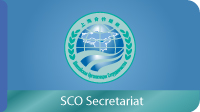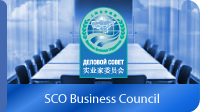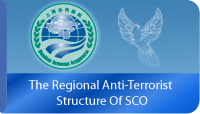|
|
 |
| Interview of Russian Minister of Foreign Affairs Sergey Lavrov to the Chinese Newspaper Keji Ribao, March 27, 2009 |
| 03.04.2009 13:28 |
|
|
|
Question: How do you assess the state of, and prospects for the Russian-Chinese strategic partnership?
Foreign Minister Lavrov: The friendly and mutually beneficial Russia-China relationship is today characterized by steadily high dynamics, by a solid legal base and by a ramified institutional structure of bilateral collaboration at every level. As a Chinese proverb goes, “A close neighbor is better than a distant relative.” Russia and China objectively have the closest relations, owing particularly to geographical proximity and long historical ties.
The basic principles for relations and the chief directions and areas of bilateral cooperation are fixed in the Treaty on Good-Neighborliness, Friendship and Cooperation between the Russian Federation and the People’s Republic of China, signed in Moscow on July 16, 2001. Intergovernmental and interdepartmental agreements operate practically in all fields.
In the political sphere, bilateral cooperation has reached the highest level, that of a strategic partnership. The Heads of State meet regularly – both in the format of official visits and on the sidelines of summits of the Shanghai Cooperation Organization, the Asia-Pacific Economic Cooperation and the Group of Eight. Last year President Dmitry Medvedev and PRC President Hu Jintao met five times.
The approaches of Russia and the PRC toward fundamental issues of the contemporary world order and toward key international problems are identical or very similar. Close foreign policy cooperation is maintained between our countries, based on this.
The mechanism of regular meetings between the Heads of Government of Russia and China, in place since 1996, is a system-forming factor for the onward development of bilateral cooperation in all fields. It helps discuss and tackle problems in the course of the direct communication of heads of ministries and departments. Also, there is between our countries a mechanism of consultation on strategic security issues, which has become an important channel for coordinating Russian-Chinese collaboration in this sphere.
Humanitarian collaboration remains one of the major areas of bilateral relations. After the successful holding of the National Years, which have brought the peoples of our countries even closer together, we are now jointly carrying out an extensive new project in humanitarian cooperation – the Year of Russian in China in 2009 and the Year of Chinese in Russia in 2010.
All of this provides a reliable basis for strengthening further the Russian-Chinese strategic partnership and mutually advantageous cooperation in all major areas. I am certain that the potential of our relations is enormous, and its consistent unfolding meets not just the interests of the two countries, but of the rest of the world as well.
Question: What areas of cooperation do you think are in need of an additional impulse? How should coordination and cooperation be strengthened in conditions of the global financial crisis?
Foreign Minister Lavrov: Russia and China have considerable untapped potential for the development of cooperation in different fields. This applies to the economy and to science and to culture.
The amount of economic and trade cooperation between our countries has been steadily growing in recent years. At the same time the structure of trade needs improving. This primarily concerns the necessity of raising the proportion of machinery-and-equipment and high technology products. And this calls for close cooperation among large industrial entities, research organizations and financial institutions. For the time being, large joint projects are not being carried out actively enough, the levels of reciprocal investment are insignificant, and the huge potential for scientific cooperation is far from being fully realized. There are also successes, of which the recently signed bilateral agreements on the construction of a China-bound branch line of the Eastern Siberia-Pacific Ocean pipeline and on Russia’s crude oil supply to China on a long-term basis and on China’s extension of a credit to Russia to the tune of 25 billion dollars are evidence.
There is a need for more effective actions to intensify cooperation between our countries at the regional level. A Program of Cooperation between the Far East and Transbaikalia regions of the Russian Federation and the provinces of the Northeastern area of the People’s Republic of China is currently being worked out that will be very useful for accelerating the economic development of the neighboring territories of our two countries.
The negative consequences of the continuing world financial crisis, which grows ever deeper, unfortunately, are being felt in all countries. Russia and China are not exceptions. In these conditions the leaders of our two countries maintain close contacts and regularly exchange views on the problems with which the world economy is confronted. The coordination of our approaches to these problems also proceeds in multilateral formats, in particular BRIC. Thus, the finance ministers of the four countries held another meeting in London recently to discuss progress in preparations for the G20 London Summit on April 2. The approaches of Russia and China to ways for overcoming the crisis are very close.
In this regard, a lot will depend on the ability of major nations to establish conditions for the sustainable development of their national economies. On the instruction of the Russian and Chinese leaders, the finance ministers of the two countries recently exchanged information on the measures of macroeconomic regulation, aimed at minimizing the consequences of the financial crisis and at preserving the stability of financial markets.
From the viewpoint of Russian-Chinese bilateral relations, it is necessary to try and use the present crisis for search of new, not yet tapped potential to build up bilateral economic cooperation and thus make it inure to the benefit of our countries in these difficult times.
Question: What has changed in Russian-American relations after President Barack Obama’s assumption of office? How do you evaluate the prospects for Russian-American relations under the new administration in Washington?
Foreign Minister Lavrov: The state of Russian-American relations has been far from ideal in the last few years. This needs to be changed. I like the thesis that has emerged recently about the need for a reset of collaboration between our countries. Good opportunities are opening up for this endeavor with the coming of the new administration to the White House.
The Russian and US presidents have already communicated over the phone twice and exchanged messages on a broad range of bilateral and international questions. I met US Secretary of State Hilary Clinton in Geneva on March 6. My impressions are good. It seems that the Obama team is in a constructive mood. Of course, it would be an exaggeration to say that our views fully coincide. But the chief thing is that they across the Atlantic seem to have developed a taste for positive joint work again. I am convinced that if we act pragmatically, relying upon coinciding interests, trying not just to listen, but also to hear, showing the readiness for reasonable compromises and respecting the national interests of each other, then we shall be able to advance substantially in addressing the major tasks facing our countries.
It’s important that it shouldn’t take long to get into the swing of things; we need to immediately shift to concrete actions. We hope that during the first personal meeting of Medvedev with Obama on April 1 in London, the heads of our states will be able to discuss in detail key bilateral and international issues and to determine a schedule of work for the near future.
We will of course pay the main attention to the maintenance of strategic stability. Serious work is ahead on the preparation of a new accord on strategic offensive arms to replace the START Treaty expiring this year. The dialogue on missile defense themes isn’t going to be easy.
A broad field for joint work is opening up in the nonproliferation sphere. The priority thrusts here are strengthening the NPT regime, increasing control over the prevention of mass destruction weapons from falling into nonstate actor hands, fighting nuclear terrorism and engaging in peaceful atomic energy cooperation. We expect the new administration to revise the United States’ negative attitude to the CTBT. We also hope for an attentive examination of the Russian-Chinese initiative for consideration of the Draft Treaty on the Non-placement of Weapons in Outer Space at the Conference on Disarmament in Geneva.
We intend to continue to work with the American side in tackling international and regional questions, such as the Afghan settlement, the Middle East peace process, the Iranian nuclear problem, the situation on the Korean Peninsula and many others. Strengthening European security is a promising area of cooperation.
We presume that our cooperation should extend beyond security issues to encompass the whole spectrum of relations, including economic and trade ties. There is something to work on here. The task now is to bolster the structures and mechanisms of dialogue in this sphere with a view to imparting extra dynamics to it.
So our agenda is most extensive. We have already begun joint work and hope that it will produce concrete results soon.
Question: A SCO summit will take place in Yekaterinburg this summer. How are the preparations for this summit proceeding? What tasks will be on the agenda? How do you evaluate the SCO development prospects?
Foreign Minister Lavrov: The Shanghai Cooperation Organization is a relatively young association, created by Russia, Kazakhstan, Kyrgyzstan, China, Tajikistan and Uzbekistan. At the base of its activities lie the principles of mutual respect, equal partnership and consensus. The organization has confidently demonstrated its ability to adequately react to the challenges of our time in the interests of its participants, and the effectiveness of the collaborative mechanisms in providing security and stability for the region.
Today the fight against terrorism, organized crime and illicit drug trafficking, assistance to comprehensive and balanced economic growth in order to improve the living standards of the peoples of our states and the furtherance of humanitarian and cultural ties have firmly established themselves among the chief objectives of the SCO.
After the 2008 Dushanbe Summit Russia took over the chairmanship of the Organization. We consider it our priority task to further consolidate member states on the principles set forth in the Charter and other fundamental documents of the SCO, to solidify the international prestige of the Organization as an interstate structure capable of becoming an important element of the emerging multipolar world and to build up mutually advantageous cooperation along different azimuths.
The intensive plan of joint measures proposed by us is now being successfully implemented. In particular, launching a mechanism of conferences of ministers of internal affairs and public security, creating a SCO Youth Council, establishing a SCO Network University and promoting cooperation in health, culture and education are on the cards.
Our chairmanship will end with a meeting of the SCO Council of Heads of State in Yekaterinburg on June 15-16 this year. We are actively gearing up for it. All our partners in the Organization have declared their agreement with the proposed date and new format for the meeting including the participation of the heads of the observer states.
The summit participants will focus mainly on how to further streamline the Organization’s activities and to develop many-sided cooperation in light of new security threats and challenges, and the consequences of the financial and economic crisis. I am convinced that the decisions to be adopted at the end of the debate will contribute to the further building-up of our interaction.
Activities of the SCO meet the interests of all its participants, member states and observer states – India, Iran, Mongolia and Pakistan – alike. The SCO is in high demand, to which the growing number of countries ready to establish dialogue-partnership relations with it is another testimony. In a word, the SCO has a great future and good prospects. An important event will be the Afghanistan Conference to be convened under the aegis of the SCO in Moscow on March 27.
Question: This year marks 60 years since diplomatic relations were established between Russia and China. Can you please tell us what events are planned on this occasion and what influence these events will exert on the further development of Russian-Chinese relations?
Foreign Minister Lavrov: We regard the sixtieth anniversary of the establishment of diplomatic relations between Russia and China as an important event. Of course, a plan of commemorative events is being prepared in both Moscow and Beijing, which must be content-rich and memorable. Plans are to hold meetings of the publics of the two countries, concerts, thematic exhibitions and the presentation of a collection of archival materials. But the preparatory work is not yet over, and it is probably too early to speak about all specific events, reported INFORMATION AND PRESS DEPARTMENT.
|
|
* Реестр иностранных средств массовой информации, выполняющих функции иностранного агента:
Голос Америки, Idel.Реалии, Кавказ.Реалии, Крым.Реалии, Телеканал Настоящее Время, Azatliq Radiosi, PCE/PC, Сибирь.Реалии, Фактограф, Север.Реалии, Радио Свобода, MEDIUM-ORIENT, Пономарев Лев Александрович, Савицкая Людмила Алексеевна, Маркелов Сергей Евгеньевич, Камалягин Денис Николаевич, Апахончич Дарья Александровна, Medusa Project, Первое антикоррупционное СМИ, VTimes.io, Баданин Роман Сергеевич, Гликин Максим Александрович, Маняхин Петр Борисович, Ярош Юлия Петровна, Чуракова Ольга Владимировна, Железнова Мария Михайловна, Лукьянова Юлия Сергеевна, Маетная Елизавета Витальевна, The Insider SIA, Рубин Михаил Аркадьевич, Гройсман Софья Романовна, Рождественский Илья Дмитриевич, Апухтина Юлия Владимировна, Постернак Алексей Евгеньевич, Общество с ограниченной ответственностью Телеканал Дождь, Петров Степан Юрьевич, Istories fonds, Шмагун Олеся Валентиновна, Мароховская Алеся Алексеевна, Долинина Ирина Николаевна, Шлейнов Роман Юрьевич, Анин Роман Александрович, Великовский Дмитрий Александрович, Альтаир 2021, Ромашки монолит, Главный редактор 2021, Вега 2021
* Сведения реестра НКО, выполняющих функции иностранного агента:
Фонд защиты прав граждан Штаб, Институт права и публичной политики, Лаборатория социальных наук, Фонд по борьбе с коррупцией, Альянс врачей, НАСИЛИЮ.НЕТ, Мы против СПИДа, Фонд защиты прав граждан, СВЕЧА, Гуманитарное действие, Открытый Петербург, Феникс ПЛЮС, Лига Избирателей, Правовая инициатива, Гражданская инициатива против экологической преступности, Фонд борьбы с коррупцией, Гражданский Союз, Российский Красный Крест, Центр Хасдей Ерушалаим, Центр поддержки и содействия развитию средств массовой информации, Горячая Линия, В защиту прав заключенных, Институт глобализации и социальных движений, Центр социально-информационных инициатив Действие, ВМЕСТЕ, Благотворительный фонд охраны здоровья и защиты прав граждан, Благотворительный фонд помощи осужденным и их семьям, Фонд Тольятти, Новое время, Серебряная тайга, Так-Так-Так, центр Сова, центр Анна, Проект Апрель, Самарская губерния, Эра здоровья, правозащитное общество Мемориал, Аналитический Центр Юрия Левады, Издательство Парк Гагарина, Фонд имени Андрея Рылькова, Сфера, Центр защиты СИБАЛЬТ, Уральская правозащитная группа, Женщины Евразии, Рязанский Мемориал, Екатеринбургское общество МЕМОРИАЛ, Институт прав человека, Фонд защиты гласности, Российский исследовательский центр по правам человека, Дальневосточный центр развития гражданских инициатив и социального партнерства, Пермский региональный правозащитный центр, Гражданское действие, Центр независимых социологических исследований, Сутяжник, АКАДЕМИЯ ПО ПРАВАМ ЧЕЛОВЕКА, Частное учреждение Совета Министров северных стран, Центр развития некоммерческих организаций, Гражданское содействие, Центр Трансперенси Интернешнл-Р, Центр Защиты Прав Средств Массовой Информации, Институт развития прессы - Сибирь, Фонд поддержки свободы прессы, Гражданский контроль, Человек и Закон, Общественная комиссия по сохранению наследия академика Сахарова, Информационное агентство МЕМО. РУ, Институт региональной прессы, Институт Развития Свободы Информации, Экозащита!-Женсовет, Общественный вердикт, Евразийская антимонопольная ассоциация, Чанышева Лилия Айратовна, Сидорович Ольга Борисовна, Таранова Юлия Николаевна, Туровский Александр Алексеевич, Васильева Анастасия Евгеньевна, Ривина Анна Валерьевна, Бурдина Юлия Владимировна, Бойко Анатолий Николаевич, Гусева Ольга Андреевна, Дугин Сергей Георгиевич, Пивоваров Андрей Сергеевич, Писемский Евгений Александрович, Аверин Виталий Евгеньевич, Барахоев Магомед Бекханович, Шевченко Дмитрий Александрович, Жданов Иван Юрьевич, Рубанов Роман Викторович, Шарипков Олег Викторович, Мальсагов Муса Асланович, Мошель Ирина Ароновна, Шведов Григорий Сергеевич, Пономарев Лев Александрович, Каргалицкий Борис Юльевич, Созаев Валерий Валерьевич, Исакова Ирина Александровна, Исламов Тимур Рифгатович, Романова Ольга Евгеньевна, Щаров Сергей Алексадрович, Цирульников Борис Альбертович, Халидова Марина Владимировна, Людевиг Марина Зариевна, Федотова Галина Анатольевна, Паутов Юрий Анатольевич, Верховский Александр Маркович, Пислакова-Паркер Марина Петровна, Кочеткова Татьяна Владимировна, Чуркина Наталья Валерьевна, Акимова Татьяна Николаевна, Золотарева Екатерина Александровна, Рачинский Ян Збигневич, Жемкова Елена Борисовна, Гудков Лев Дмитриевич, Илларионова Юлия Юрьевна, Саранг Анна Васильевна, Захарова Светлана Сергеевна, Аверин Владимир Анатольевич, Щур Татьяна Михайловна, Щур Николай Алексеевич, Блинушов Андрей Юрьевич, Мосин Алексей Геннадьевич, Гефтер Валентин Михайлович, Симонов Алексей Кириллович, Флиге Ирина Анатольевна, Мельникова Валентина Дмитриевна, Вититинова Елена Владимировна, Баженова Светлана Куприяновна, Исаев Сергей Владимирович, Максимов Сергей Владимирович, Беляев Сергей Иванович, Голубева Елена Николаевна, Ганнушкина Светлана Алексеевна, Закс Елена Владимировна, Буртина Елена Юрьевна, Гендель Людмила Залмановна, Кокорина Екатерина Алексеевна, Шуманов Илья Вячеславович, Арапова Галина Юрьевна, Пастухова Анна Яковлевна, Прохоров Вадим Юрьевич, Шахова Елена Владимировна, Подузов Сергей Васильевич, Протасова Ирина Вячеславовна, Литинский Леонид Борисович, Лукашевский Сергей Маркович, Бахмин Вячеслав Иванович, Шабад Анатолий Ефимович, Сухих Дарья Николаевна, Орлов Олег Петрович, Добровольская Анна Дмитриевна, Королева Александра Евгеньевна, Смирнов Владимир Александрович, Вицин Сергей Ефимович, Золотухин Борис Андреевич, Левинсон Лев Семенович, Локшина Татьяна Иосифовна, Орлов Олег Петрович, Полякова Мара Федоровна, Резник Генри Маркович, Захаров Герман Константинович
* Единый федеральный список организаций, в том числе иностранных и международных организаций, признанных в соответствии с законодательством Российской Федерации террористическими:
Высший военный Маджлисуль Шура, Конгресс народов Ичкерии и Дагестана, Аль-Каида, Асбат аль-Ансар, Священная война, Исламская группа, Братья-мусульмане, Партия исламского освобождения, Лашкар-И-Тайба, Исламская группа, Движение Талибан, Исламская партия Туркестана, Общество социальных реформ, Общество возрождения исламского наследия, Дом двух святых, Джунд аш-Шам, Исламский джихад, Аль-Каида, Имарат Кавказ, АБТО, Правый сектор, Исламское государство, Джабха аль-Нусра ли-Ахль аш-Шам, Народное ополчение имени К. Минина и Д. Пожарского, Аджр от Аллаха Субхану уа Тагьаля SHAM, АУМ Синрике, Муджахеды джамаата Ат-Тавхида Валь-Джихад, Чистопольский Джамаат, Рохнамо ба суи давлати исломи, Террористическое сообщество Сеть, Катиба Таухид валь-Джихад, Хайят Тахрир аш-Шам, Ахлю Сунна Валь Джамаа
* Перечень общественных объединений и религиозных организаций в отношении которых судом принято вступившее в законную силу решение о ликвидации или запрете деятельности:
Национал-большевистская партия, ВЕК РА, Рада земли Кубанской Духовно Родовой Державы Русь, Асгардская Славянская Община Асгардской Веси Беловодья, Славянская Община Капища Веды Перуна, Мужская Духовная Семинария Староверов-Инглингов, Нурджулар, К Богодержавию, Таблиги Джамаат, Русское национальное единство, Национал-социалистическое общество, Джамаат мувахидов, Объединенный Вилайат Кабарды, Балкарии и Карачая, Союз славян, Ат-Такфир Валь-Хиджра, Пит Буль, Национал-социалистическая рабочая партия России, Славянский союз, Формат-18, Благородный Орден Дьявола, Армия воли народа, Национальная Социалистическая Инициатива города Череповца, Духовно-Родовая Держава Русь, Русское национальное единство, Древнерусской Инглистической церкви Православных Староверов-Инглингов, Русский общенациональный союз, Движение против нелегальной иммиграции, Кровь и Честь, О свободе совести и о религиозных объединениях, Омская организация Русское национальное единство, Северное Братство, Клуб Болельщиков Футбольного Клуба Динамо, Файзрахманисты, Мусульманская религиозная организация п. Боровский, Община Коренного Русского народа Щелковского района, Правый сектор, Украинская национальная ассамблея, Украинская повстанческая армия, Тризуб им. Степана Бандеры, Украинская организация «Братство», Свидетели Иеговы, О противодействии экстремистской деятельности, РЕВТАТПОД, Артподготовка, Штольц, В честь иконы Божией Матери Державная, Сектор 16, Независимость, Организация футбольных болельщиков «Фирма», Молодежная правозащитная группа МПГ, Курсом Правды и Единения, Каракольская инициативная группа, Автоград Крю, Союз Славянских Сил Руси, Алля-Аят, Благотворительный пансионат Ак Умут, Русская республика Русь, Арестантское уголовное единство, Башкорт, Нация и свобода, W.H.С., Фалунь Дафа, Иртыш Ultras, Русский Патриотический клуб-Новокузнецк/РПК, Сибирский державный союз, Фонд борьбы с коррупцией, Фонд защиты прав граждан, Штабы Навального
|






















Leave a comment